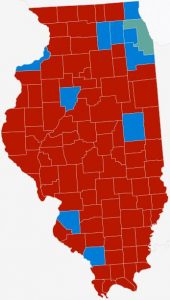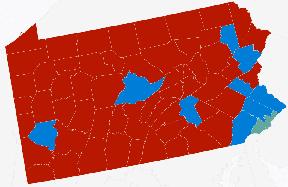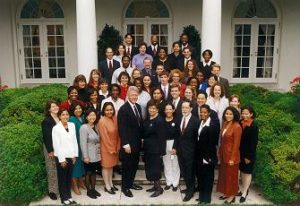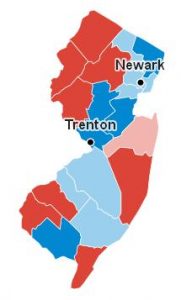This is mark Joseph “young” blog entry #150, on the subject of 2016 Retrospective.
Periodically I try to look back over some period of time and review what I have published, and the end of the year is a good time to do this. Thus before the new year begins I am offering you a reminder of articles you might have seen–or might have missed–over the past twelve months. I am not going to recall them all. For one thing, that would be far too many, and it in some cases will be easier to point to another location where certain categories of articles are indexed (which will appear more obvious as we progress). For another, although we did this a year ago in web log post #34: Happy Old Year, we also did it late in March in #70: Writing Backwards and Forwards, when we had finished posting Verse Three, Chapter One: The First Multiverser Novel. So we will begin with the last third of March, and will reference some articles through indices and other sources.
I have divided articles into the categories which I thought most appropriate to them. Many of these articles are reasonably in two or more categories–articles related to music often relate to writing, or Bible and theology; Bible and politics articles sometimes are nearly interchangeable. I, of course, think it is all worth reading; I hope you think it at least worth considering reading.
I should also explain those odd six-digit numbers for anyone for whom they are not obvious, because they are at least non-standard. They are YYMMDD, that is, year, month, and day of the date of publication of each article, each represented by two digits. Thus the first one which appears, 160325, represents this year 2016, the third month March, and the twenty-fifth day.
Let’s start with writings about writing.
There is quite a bit that should be in this category. After all, that previous retrospective post appeared as we finished posting that first novel, and we have since posted the second, all one hundred sixty-two chapters of which are indexed in their own website section, Old Verses New. If you’ve not read the novels, you have some catching up to do. I also published one more behind-the-writings post on that first novel, #71: Footnotes on Verse Three, Chapter One 160325, to cover notes unearthed in an old file on the hard drive.
Concurrent with the release of those second novel chapters there were again behind-the-writings posts, this time each covering nine consecutive chapters and hitting the web log every two weeks. Although they are all linked from that table-of-contents page, since they are web log posts I am listing them here: #74: Another Novel 160421; #78: Novel Fears 160506; #82: Novel Developments 160519; #86: Novel Conflicts 160602; #89: Novel Confrontations 160623; #91: Novel Mysteries 160707; #94: Novel Meetings 160721; #100: Novel Settling 160804; #104: Novel Learning 160818; #110: Character Redirects 160901;
#113: Character Movements 160916;
#116: Character Missions 160929;
#119: Character Projects 161013;
#122: Character Partings 161027; #128: Character Gatherings 161110; #134: Versers in Space 161124; #142: Characters Unite 161208; and #148: Characters Succeed 161222.
I have also added a Novel Support Section which at this point contains character sheets for several of the characters in the first novel and one in the second; also, if you have enjoyed reading the novels and have not seen #149: Toward the Third Novel 161223, it is a must-read.
Also on the subject of writing, I discussed what was required for someone to be identified as an “author” in, appropriately, #72: Being an Author 160410. I addressed #118: Dry Spells 161012 and how to deal with them, and gave some advice on #132: Writing Horror 161116. There was also one fun Multiverser story which had been at Dice Tales years ago which I revived here, #146: Chris and the Teleporting Spaceships 161220
I struggled with where on this list to put #120: Giving Offense 161014. It deals with political issues of sexuality and involves a bit of theological perspective, but ultimately is about the concept of tolerance and how we handle disagreements.
It should be mentioned that not everything I write is here at M. J. Young Net; I write a bit about writing in my Goodreads book reviews.
Of course, I also wrote a fair amount of Bible and Theology material.
Part of it was apologetic, that is, discussing the reasons for belief and answers to the arguments against it. In this category we have #73: Authenticity of the New Testament Accounts 160413, #76: Intelligent Simulation 160424 (specifically addressing an incongruity between denying the possibility of “Intelligent Design” while accepting that the universe might be the equivalent of a computer program), and #84: Man-made Religion 160527 (addressing the charge that the fact all religions are different proves none are true).
Other pages are more Bible or theology questions, such as #88: Sheep and Goats 160617, #90: Footnotes on Guidance 160625, #121: The Christian and the Law 161022, and #133: Your Sunday Best 161117 (on why people dress up for church).
#114: St. Teresa, Pedophile Priests, and Miracles 160917 is probably a bit of both, as it is a response to a criticism of Christian faith (specifically the Roman Catholic Church, but impacting all of us).
There was also a short miniseries of posts about the first chapter of Romans, the sin and punishment it presents, and how we as believers should respond. It appeared in four parts: #138: The Sin of Romans I 161204, #139: Immorality in Romans I 161205, #140: Societal Implications of Romans I 161206, and #141: The Solution to the Romans I Problem 161207.
Again, not everything I wrote is here. The Faith and Gaming series and related materials including some from The Way, the Truth, and the Dice are being republished at the Christian Gamers Guild; to date, twenty-six such articles have appeared, but more are on the way including one written recently (a rules set for what I think might be a Christian game) which I debated posting here but decided to give to them as fresh content. Meanwhile, the Chaplain’s Bible Study continues, having completed I & II Peter and now entering the last chapter of I John.
Again, some posts which are listed below as political are closely connected to principles of faith; after all, freedom of speech and freedom of religion are inextricably connected. Also, quite a few of the music posts are also Bible or theology posts, since I have been involved in Christian music for decades.
So Music will be the next subject.
Since it is something people ask musicians, I decided to give some thought and put some words to #75: Musical Influences 160423, the artists who have impacted my composing, arranging, and performances.
I also reached into my memories of being in radio, how it applies to being a musician and to being a writer, in #77: Radio Activity 160427.
I wrote a miniseries about ministry and music, what it means to be a minister and how different kinds of ministries integrate music. It began by saying not all Christian musicians are necessarily ministers in #95: Music Ministry Disconnect 160724, and then continued with #97: Ministry Calling 160728, #98: What Is a Minister? 160730, #99: Music Ministry of an Apostle 160803, #101: Prophetic Music Ministry 160808, #102: Music and the Evangelist Ministry 160812, #103: Music Ministry of the Pastor 160814, #106: The Teacher Music Ministry 160821, and
#107: Miscellaneous Music Ministries 160824. As something of an addendum, I posted #109: Simple Songs 160827, a discussion of why so many currently popular songs seem to be musically very basic, and why given their purpose that is an essential feature.
In related areas, I offered #111: A Partial History of the Audio Recording Industry 160903 explaining why recored companies are failing, #129: Eulogy for the Record Album 161111 discussing why this is becoming a lost art form, and #147: Traditional versus Contemporary Music 161221 on the perennial argument in churches about what kinds of songs are appropriate.
The lyrics to my song Free 161017 were added to the site, because it was referenced in one of the articles and I thought the readers should be able to find them if they wished.
There were quite a few articles about Law and Politics, although despite the fact that this was an “election year” (of course, there are elections every year, but this one was special), most of them were not really about that. By March the Presidential race had devolved into such utter nonsense that there was little chance of making sense of it, so I stopped writing about it after talking about Ridiculous Republicans and Dizzying Democrats.
Some were, of course. These included the self-explanatory titles #123: The 2016 Election in New Jersey 161104, #124: The 2016 New Jersey Public Questions 161105, #125: My Presidential Fears 161106, and #127: New Jersey 2016 Election Results 161109, and a few others including #126: Equity and Religion 161107 about an argument in Missouri concerning whether it should be legal to give state money to child care and preschool services affiliated with religious groups, and #131: The Fat Lady Sings 161114, #136: Recounting Nonsense 161128, and #143: A Geographical Look at the Election 161217, considering the aftermath of the election and the cries to change the outcome.
We had a number of pages connected to the new sexual revolution, including #79: Normal Promiscuity 160507, #83: Help! I’m a Lesbian Trapped in a Man’s Body! 160521, and #115: Disregarding Facts About Sexual Preference 160926.
Other topics loosely under discrimination include #87: Spanish Ice Cream 160616 (about whether a well-known shop can refuse to take orders in languages other than English), #130: Economics and Racism 161112 (about how and why unemployment stimulates racist attitudes), and #135: What Racism Is 161127 (explaining why it is possible for blacks to have racist attitudes toward whites). Several with connections to law and economics include #105: Forced Philanthropy 160820 (taxing those with more to give to those with less), #108: The Value of Ostentation 160826 (arguing that the purchase of expensive baubles by the rich is good for the poor), #137: Conservative Penny-pinching 161023 (discussing spending cuts), and #145: The New Internet Tax Law 161219 (about how Colorado has gotten around the problem of charging sales tax on Internet purchases).
A few other topics were hit, including one on freedom of speech and religion called #144: Shutting Off the Jukebox 161218, one on scare tactics used to promote policy entitled #80: Environmental Blackmail 160508, and one in which court decisions in recent immigration cases seem likely to impact the future of legalized marijuana, called #96: Federal Non-enforcement 160727.
Of course Temporal Anomalies is a popular subject among the readers; the budget has been constraining of late, so we have not done the number of analyses we would like, but we did post a full analysis of Time Lapse 160402. We also reported on #85: Time Travel Coming on Television 160528, and tackled two related issues, #81: The Grandfather Paradox Problem 160515 and #117: The Prime Universe 160930.
We have a number of other posts that we’re categorizing as Logic/Miscellany, mostly because they otherwise defy categorization (or, perhaps, become categories with single items within them). #92: Electronic Tyranny 060708 is a response to someone’s suggestion that we need to break away from social media to get our lives back. #93: What Is a Friend? 060720 presents two concepts of the word, and my own preference on that. #112: Isn’t It Obvious? 160904 is really just a couple of real life problems with logical solutions. I also did a product review of an old washing machine that was once new, Notes on a Maytag Centennial Washing Machine 160424.
Although it does not involve much writing, with tongue planted firmly in cheek I offer Gazebos in the Wild, a Pinterest board which posts photographs with taxonomies attempting to capture and identify these dangerous wild creatures in their natural habitats. You would have to have heard the story of Eric and the Gazebo for that to be funny, I think.
Of course, I post on social media, but the interesting ones are on Patreon, and mostly because I include notes on projects still ahead and life issues impeding them. As 2017 arrives, I expect to continue writing and posting–I already have two drafts, one on music and the other on breaking bad habits. I invite your feedback.
[contact-form subject='[mark Joseph %26quot;young%26quot;’][contact-field label=’Name’ type=’name’ required=’1’/][contact-field label=’Email’ type=’email’ required=’1’/][contact-field label=’Website’ type=’url’/][contact-field label=’Comment: Note that this form will contact the author by e-mail; to post comments to the article, see below.’ type=’textarea’ required=’1’/][/contact-form]









